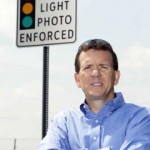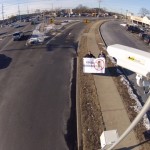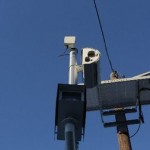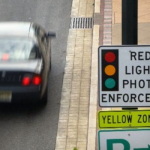O’SCANLON BILL ENDS FLEECING OF NJ DRIVERS BY OUT OF STATE SPEED AND RED-LIGHT CAMERA PROGRAMS
Legislation will prohibit NJ drivers’ information from being shared with private companies for purposes of speed or red-light camera enforcement
Assemblyman Declan O’Scanlon announced today that he has filed legislation that will not allow New Jersey drivers to be preyed upon by red-light or speed-camera manufacturers that operate in other States. This legislation was modeled after a South Dakota statute that passed both houses and was signed into law by South Dakota Governor Dennis Daugaard this year.
“New Jersey’s red light camera program, mercifully, appears to be headed towards certain death this December – and we already wisely ban speed camera enforcement – but these systems continue to operate in neighboring states where our drivers often commute,” O’Scanlon explained. “These systems have proven to be error-ridden and non-effective so we shouldn’t allow our motorists to be preyed upon when they are outside of our borders. By continuing to share this information – now that the evidence is clear that these systems don’t improve safety – New Jersey would essentially become complicit in the scam. And that’s exactly what these systems are – government sanctioned theft. If you set yellow light times and speed limits based on sound engineering criteria you end up with the safest roadways. You also eliminate the profits in these systems.”
The bill will prohibit the New Jersey Motor Vehicle Commission from sharing residents’ license plate information with the private companies operating these systems for the purposes of speed-camera and red-light camera citations.
Automated enforcement cameras penalize the owner of the vehicle, not the driver, making it harder for the accused to defend themselves in court. This is especially true in out-of-state jurisdictions. Police in NJ and all other jurisdictions will still be able to use the database for traffic violations – with the exception of speed and red light automated enforcement violations.
“I have no problem with police using the databases for legitimate purposes to ensure our highways are safe nationwide. Automated enforcement has been proven not to be a legitimate tool to improve safety, and I won’t let other states pickpocket our residents.” O’Scanlon said. “I have heard and read about the nightmares of the systems in neighboring states like New York, Pennsylvania and the Baltimore-Washington DC corridor.”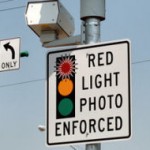
Recent reports have shown that with speed and red-light cameras in neighboring states, some systems had error rates of almost 60%, prompting the City of Baltimore to return $2.8 million in wrongly issued citations[1], and neighboring cities have seen accidents actually increase when red light camera systems were enabled[2]. Around the country, the tide is turning against these systems – a 6% drop has been recorded in the number of systems operating nationwide just in the last year and a half. [3] Additionally, last month the US House of Representatives voted to ban federal funding for automated enforcement cameras[4].
[1] http://rt.com/usa/baltimore-return-millions-speed-cameras-104/
[2] http://thenewspaper.com/news/40/4034.asp


